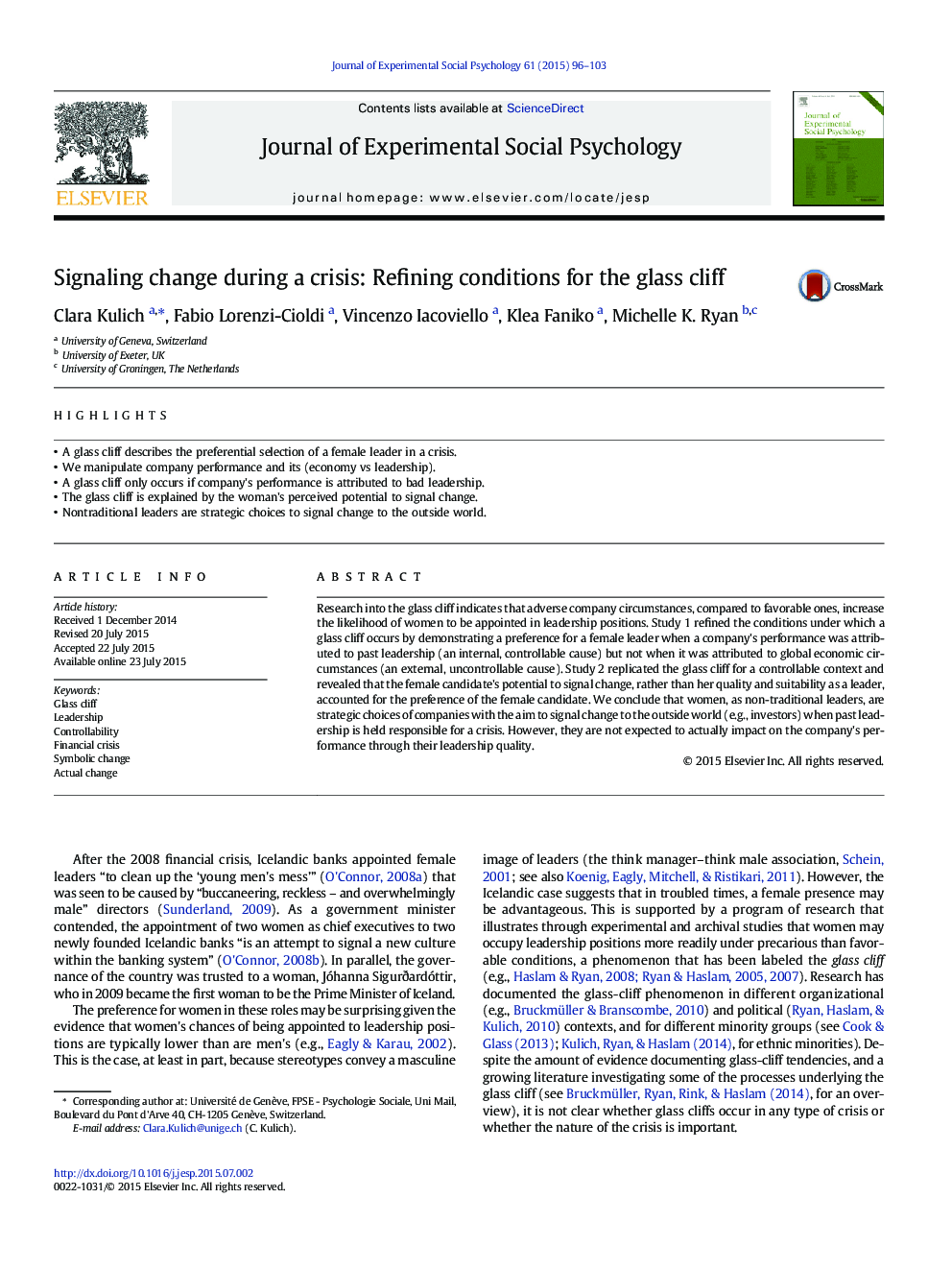| Article ID | Journal | Published Year | Pages | File Type |
|---|---|---|---|---|
| 7324463 | Journal of Experimental Social Psychology | 2015 | 8 Pages |
Abstract
Research into the glass cliff indicates that adverse company circumstances, compared to favorable ones, increase the likelihood of women to be appointed in leadership positions. Study 1 refined the conditions under which a glass cliff occurs by demonstrating a preference for a female leader when a company's performance was attributed to past leadership (an internal, controllable cause) but not when it was attributed to global economic circumstances (an external, uncontrollable cause). Study 2 replicated the glass cliff for a controllable context and revealed that the female candidate's potential to signal change, rather than her quality and suitability as a leader, accounted for the preference of the female candidate. We conclude that women, as non-traditional leaders, are strategic choices of companies with the aim to signal change to the outside world (e.g., investors) when past leadership is held responsible for a crisis. However, they are not expected to actually impact on the company's performance through their leadership quality.
Related Topics
Life Sciences
Neuroscience
Behavioral Neuroscience
Authors
Clara Kulich, Fabio Lorenzi-Cioldi, Vincenzo Iacoviello, Klea Faniko, Michelle K. Ryan,
